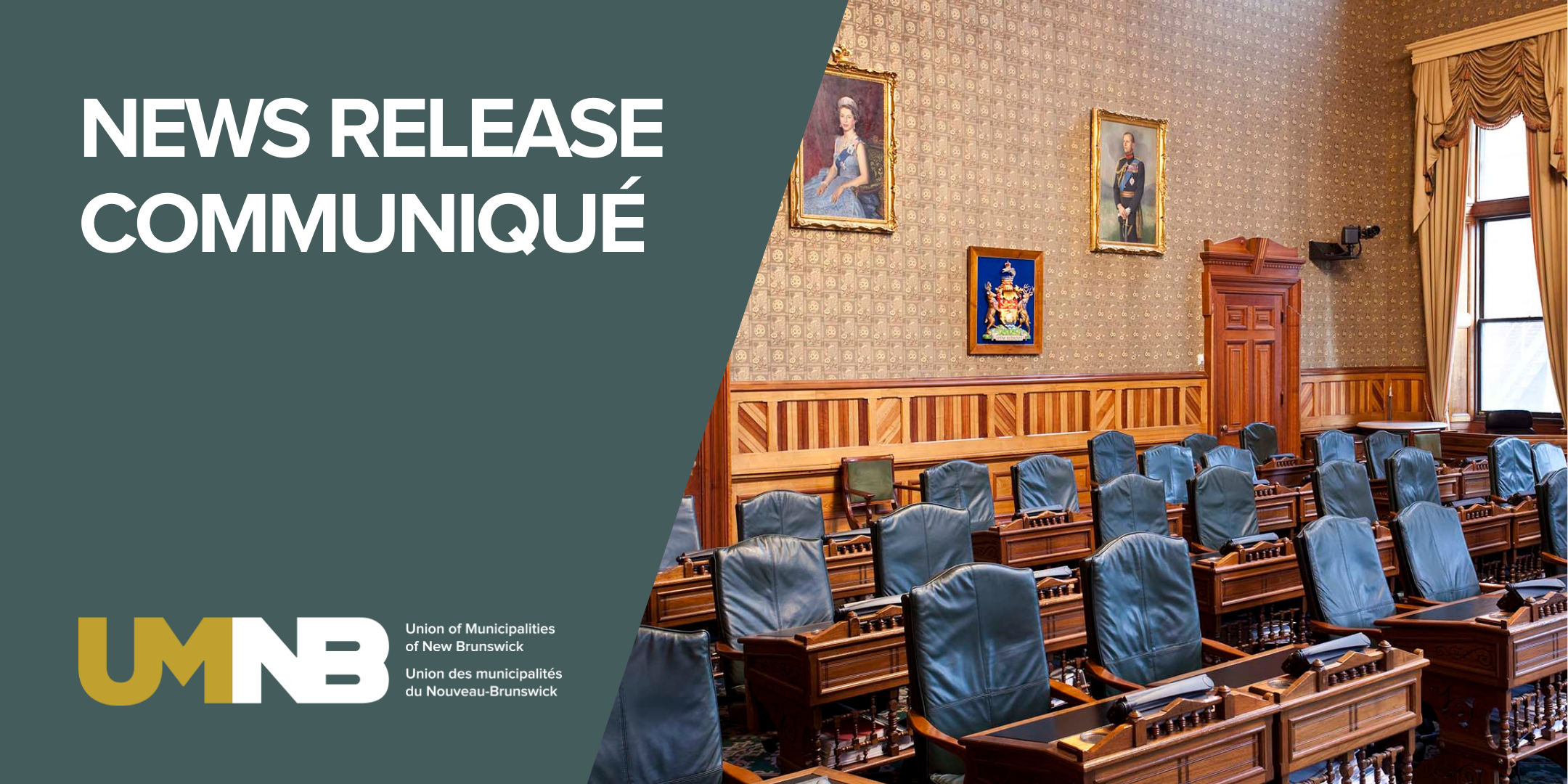
May 6, 2025
UMNB and AFMNB denounce a funding cut disguised as an affordability measure
Fredericton (NB) – The Government of New Brunswick introduced a bill today to freeze residential, non-residential and industrial property assessments for one year. For the Union of Municipalities of New Brunswick (UMNB) and the Association francophone des municipalités du Nouveau-Brunswick (AFMNB), this unilateral move breaks a commitment to municipalities and sets a troubling precedent for interference in municipal finances.
“This government is about to table legislation we’ve worked on together for over a year to improve municipal funding,” said Yvon Godin, President of the AFMNB. “But in the very same week, they’re pushing forward a measure that cancels out those gains. You can’t call that partnership.”
Municipal officials share concerns about affordability. The goal of fiscal reform is to reduce reliance on property taxes through stable, fair, and predictable provincial funding. Today’s announcement of a blanket freeze, without targeted support or real dialogue, undermines the ability to deliver basic services and further compounds the pressures put on municipalities by local government reform. It also deepens regional inequalities, by especially penalizing communities where market sales or new construction are more limited.
“This isn’t just a freeze – it’s a chokehold,” added Godin. “If we want to talk about affordability, let’s at least be honest about who it helps – and who it doesn’t. It gives the biggest break to those who need it the least, and does little to support low-income families, renters, or seniors.”
Property assessments don’t directly determine tax bills – they define the municipal tax base. Freezing them doesn’t eliminate needs, it just transfers the burden to local governments and makes them harder to fund. Without revenue growth, tax rates will rise.
“An assessment freeze is not property tax reform,” said Brittany Merrifield, UMNB President. “The freeze puts more pressure on property taxpayers as municipalities rely on property taxes for 85% of our budgets. It puts immense pressure on municipalities to meet the mandates given to us through local governance reform and downloaded provincial services.”
The freeze could cost municipalities up to $58 million; nearly the full increase promised under the fiscal framework by 2026. “We support targeted relief,” added Merrifield. “But the provincial government isn’t addressing affordability, it’s just passing the bill to communities who can’t borrow to pay it. This is neither equitable nor sustainable.”
AFMNB and UMNB reiterate that fiscal reform and property tax reform are two separate matters. One is about adequate, predictable funding. The other is about tax structure and fairness.
“This isn’t partnership – it’s paternalism,” concluded Mr. Godin. “Unilateral decisions erode trust – and destabilize communities.”
About the UMNB
The Union of Municipalities of New Brunswick (UMNB) is a bilingual association of 60 local governments of all sizes, representing over 80% of New Brunswick’s population. Together, our members tackle local challenges and share solutions to make life better for their citizens.
About the AFMNB
The AFMNB brings together 30 French-speaking and bilingual municipalities, spread across six major regions stretching from the northwest to the southeast of the province. Our member municipalities represent nearly 389,000 people, or almost half of the population of New Brunswick.
– 30 –
Media Contact:
Briana Cowie | External Relations Manager
(506) 444-2285
Michelle Barclay | Director of Policy
(506) 542-2622 ext. 2447
